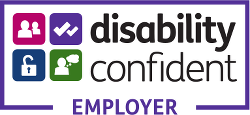Job summary
- Main area
- Lung and Gynaecological Cancers
- Grade
- NHS Medical & Dental: Specialist Grade
- Contract
- Permanent
- Hours
- Full time - 40 hours per week
- Job ref
- 356-24-6350289
- Employer
- Hull University Teaching Hospitals NHS Trust
- Employer type
- NHS
- Site
- Castle Hill Hospital
- Town
- Cottingham
- Salary
- £83,945 - £95,275 pa pr
- Salary period
- Yearly
- Closing
- 04/07/2024 23:59
Employer heading

Specialist Grade in Medical Oncology -Lung and Gynae cancers
NHS Medical & Dental: Specialist Grade
Job overview
This post of Specialist Grade in Medical Oncology is part of the cancer team working across East Yorkshire, North-East Lincolnshire and Goole.
It is anticipated that the post will be based within the Queen’s Centre.
Main duties of the job
Participation in audit / appraisal and CME is mandatory under clinical governance / RCR / RCP / GMC guidance. Time is allowed within core SPAs to take part in audit and there is a dedicated audit lead for the department. 10 days of study leave per annum are funded for CPD and training.
Duties other than those clinical duties specified will be in accordance with the job plan agreed between the appointee, the clinical lead and the Chief Executive. The job plan allows for Administration, Teaching and Medical Audit.
The candidate may be required to work on any of the Trust’s sites and across the seven day period where necessary.
Secretarial support and appropriate office accommodation and IT facilities will be provided.
Work at the unit and centre may be supported by Specialist Trainees.
The trainees are linked with teams of consultants and specialist grades (based around site specialisation).
Successful candidates will be expected to support the Trust’s goals for sustainability by encouraging and adopting sustainable ideas and practices.
Working for our organisation
The Humber Health Partnership is one of the largest acute and community Partnership arrangements in the NHS, seeing well over one million patients every year and managing a budget of over £1.3 billion.
Made up of two Trusts - Northern Lincolnshire and Goole NHS Foundation Trust (NLAG) and Hull University Teaching Hospitals NHS Trust (HUTH) - our Partnership has significant ambitions and is committed to delivering world-class hospital and community services for the 1.65 million people we serve.
Together we employ nearly 20,000 staff. Our five main hospital sites are Diana, Princess of Wales Hospital, Scunthorpe General Hospital and Goole and District Hospital, for NLAG and Hull Royal Infirmary and Castle Hill Hospital for HUTH.
As Teaching Hospitals working with the Hull York Medical School, we both lead and contribute to research in many areas - biomedical research, primary care, palliative medicine, cardiovascular and respiratory medicine, vascular surgery, cancer surgery and oncology.
We believe that by developing a diverse, inclusive, innovative, skilled and caring workforce, we can deliver excellent care to our patients and a great future for our employees, our Partnership and our community.
Detailed job description and main responsibilities
For further details with regard to this vacancy opportunity, please see the attached Job Description and Person Specification.
Person specification
Qualifications
Essential criteria
- • MBBS or equivalent medical qualification
- • Full registration with the GMC
- • Post graduate qualification in oncology (eg. FRCR, SCE or equivalent)
- • Minimum of 12 years full time postgraduate training (or equivalent gained part time)
- • At least 6 years' experience in oncology
Professional values and behaviours, skills and knowledge
Essential criteria
- Practises with the professional values and behaviours expected of all doctors as set out in GMC Good Medical Practice and the Generic Professional Capabilities Framework.
- Demonstrates the underpinning subject-specific competences i.e. knowledge, skills and behaviours relevant to the role setting and scope
- Clinically evaluates and manages a patient, formulating a prioritised differential diagnosis, initiating an appropriate management plan, and reviewing and adjusting this depending on the outcomes of treatment.
- Manages the difficulties of dealing with complexity and uncertainty in the care of patients; employing expertise and clinical decision-making skills of a senior and independent/ autonomous practitioner.
- Critically reflects on own competence, understands own limits, and seeks help when required.
- Communicates effectively and is able to share decision-making with patients, relatives and carers; treats patients as individuals, promoting a person-centred approach to their care, including self-management.
- 7 Respects patients’ dignity, ensures confidentiality and appropriate communication where potentially difficult or where barriers exist, e.g. using interpreters and making adjustments for patients with communication difficulties.
- Demonstrates key generic clinical skills around the areas of consent; ensuring humane interventions, prescribing medicines safely and using medical devices safely.
- Adheres to professional requirements, participating in annual appraisal, job planning and reviews of performance and progression.
- Awareness of legal responsibilities relevant to the role, such as around mental capacity and deprivation of liberty; data protection; equality and diversity.
- Applies basic principles of public health; including population health, promoting health and wellbeing, work, nutrition, exercise, vaccination and illness prevention, as relevant to their specialty.
Leadership and team working
Essential criteria
- Awareness of their leadership responsibilities as a clinician and demonstrates appropriate leadership behaviour; managing situations that are unfamiliar, complex or unpredictable and seeking to build collaboration with, and confidence in, others.
- Demonstrates understanding of a range of leadership principles, approaches and techniques so can adapt leadership behaviours to improve engagement and outcomes – appreciates own leadership style and its impact on others.
- Develops effective relationships across teams and contributes to work and success of these teams – promotes and participates in both multidisciplinary and inter-professional team working.
- Critically reflects on decision-making processes and explains those decisions to others in an honest and transparent way.
- Critically appraises performance of self, colleagues or peers and systems to enhance performance and support development.
- Demonstrates ability to challenge others, escalating concerns when necessary.
- Develops practice in response to changing population health need, engaging in horizon scanning for future developments.
Patient safety and quality improvement
Essential criteria
- Takes prompt action where there is an issue with the safety or quality of patient care, raises and escalates concerns, through clinical governance systems, where necessary.
- Applies basic human factors principles and practice at individual, team, organisation and system levels.
- Collaborates with multidisciplinary and inter-professional teams to manage risk and issues across organisations and settings, with respect for and recognition of the roles of other health professionals.
- Advocates for, and contributes to, organisational learning.
- Seeks feedback and involvement from individuals, families, carers, communities and colleagues in safety and quality service improvements reviews.
- Leads new practice and service redesign in response to feedback, evaluation and need, promoting best practice.
- Evaluates and audits own and others’ clinical practice and acts on the findings.
- Reflects on personal behaviour and practice, responding to learning opportunities.
- Implements quality improvement methods and repeats quality improvement cycles to refine practice; designing projects and evaluating their impact.
- Critically appraises and synthesises the outcomes of audit, inquiries, critical incidents or complaints and implements appropriate changes.
- Engages with relevant stakeholders to develop and implement robust governance systems and systematic documentation processes.
Safeguarding vulnerable groups
Essential criteria
- Recognises and takes responsibility for safeguarding children, young people and adults, using appropriate systems for identifying, sharing information, recording and raising concerns, obtaining advice and taking action.
- Applies appropriate equality and diversity legislation, including disability discrimination requirements, in the context of patient care
Education and training
Essential criteria
- Critically assesses own learning needs and ensures a personal development plan reflects both clinical practice and the relevant generic capabilities to lead and develop services.
- Promotes and participates in individual and team learning; supporting the educational needs of individuals and teams for uni-professional, multidisciplinary and inter-professional learning.
- Identifies and creates safe and supportive working and learning environments.
- Can act as a role model, educator, supervisor, coach or mentor for medical and non-medical practitioners.
- Creates effective learning opportunities and provides developmental feedback, both verbally and in writing, to learners and doctors/dentists in training, as required by the role.
- Plans and provides effective teaching and training activities as required by the role.
- Understands how to raise concerns about the behaviour or performance of any learner who is under their clinical supervision (leadership).
- Takes part in patient education
Research and scholarship
Essential criteria
- Up-to-date with current research and best practice in the individual’s specific area of practice, through appropriate continuing professional development activities and their own independent study and reflection.
- Critically appraises and understands the relevance of the literature, conducting literature searches and reviews; disseminates best practice including from quality improvement projects.
- Locates and uses clinical guidelines appropriately
- Communicates and interprets research evidence in a meaningful way for patients to support shared decision-making.
- Works towards identifying the need for further research to strengthen the evidence base or where there are gaps in knowledge, networking with teams within and outside the organisation.
Applicant requirements
You must have appropriate UK professional registration.
This post is subject to the Rehabilitation of Offenders Act 1974 (Exceptions) Order 1975 (Amendment) (England and Wales) Order 2020 and it will be necessary for a submission for Disclosure to be made to the Disclosure and Barring Service.
Documents to download
Further details / informal visits contact
- Name
- Victoria Brown
- Job title
- Clinical Director in Specialist Cancer Services
- Email address
- [email protected]
- Telephone number
- 01482 461316
List jobs with Hull University Teaching Hospitals NHS Trust in Medical and Dental or all sectors


